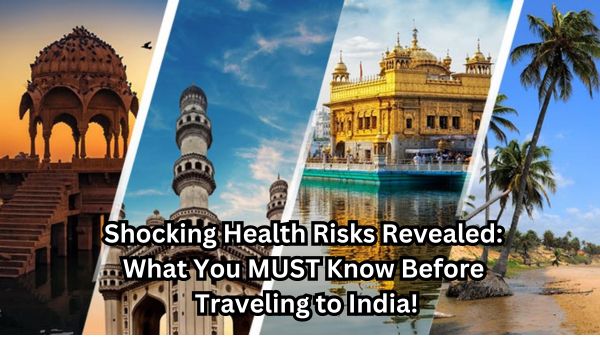Shocking Health Risks Revealed: What You MUST Know Before Traveling to India!
Traveling to India is an enriching experience filled with vibrant culture, diverse landscapes, and a rich tapestry of history. However, amidst the allure of this fascinating country, it’s crucial to be aware of certain health risks that travelers might encounter. India’s climate, sanitation standards, and prevalent diseases can pose challenges to those visiting from abroad. Being informed and prepared can make a significant difference in ensuring a safe and enjoyable journey.
1. Water and Food Safety:
One of the primary concerns for travelers to India is the quality of water and food. Contaminated water can lead to various gastrointestinal issues such as traveler’s diarrhea or more severe illnesses like cholera. It’s advisable to drink bottled water or water that has been properly purified and to avoid consuming uncooked or undercooked foods, especially from street vendors. Opting for hot, freshly cooked meals from reputable establishments can reduce the risk of food-borne illnesses.

2. Air Quality:
India’s metropolitan cities often grapple with high levels of air pollution, which can exacerbate respiratory conditions and cause discomfort for those unaccustomed to such conditions. Wearing masks and avoiding outdoor activities during peak pollution hours can help mitigate the effects of poor air quality.
3. Vector-Borne Diseases:
Mosquito-borne illnesses like malaria and dengue fever are prevalent in various parts of India, especially during the monsoon season. Travelers are advised to use mosquito repellents, wear long-sleeved clothing, and stay in accommodations with screened windows to minimize exposure to mosquitoes. Additionally, seeking medical advice before traveling and taking appropriate prophylactic medication can be beneficial in preventing these diseases.
4. Traveler’s Health Insurance:
Obtaining comprehensive travel health insurance is crucial when visiting India. Quality medical care is available in many urban centers, but it can be expensive for visitors without insurance. Having adequate coverage ensures access to medical facilities in case of emergencies or unexpected health issues.
5. Altitude Sickness:
For those exploring the Himalayan region or other high-altitude areas, altitude sickness can be a concern. Gradual acclimatization, staying hydrated, and avoiding excessive physical exertion upon arrival at higher altitudes can help prevent or minimize the symptoms of altitude sickness.
6. Heat-Related Illnesses:
India’s climate can be intense, particularly during the summer months. Dehydration and heatstroke are potential risks, especially in regions with high temperatures. Travelers should stay hydrated by drinking plenty of fluids, seek shade during peak sunlight hours, and wear appropriate clothing to protect against sunburn.
7. Cultural Practices and Health:
Engaging in certain cultural practices, such as visiting crowded religious sites or participating in festivals, may expose travelers to infectious diseases due to close contact with large groups of people. It’s advisable to practice good hygiene, such as frequent handwashing, and consider vaccinations against diseases like influenza before participating in such events.
In conclusion, while India offers a wealth of experiences, being mindful of potential health risks is essential for a smooth and enjoyable trip. Taking necessary precautions, staying informed, and seeking medical advice before and during travel can significantly reduce the likelihood of encountering health issues, allowing travelers to fully immerse themselves in the beauty and diversity that India has to offer.